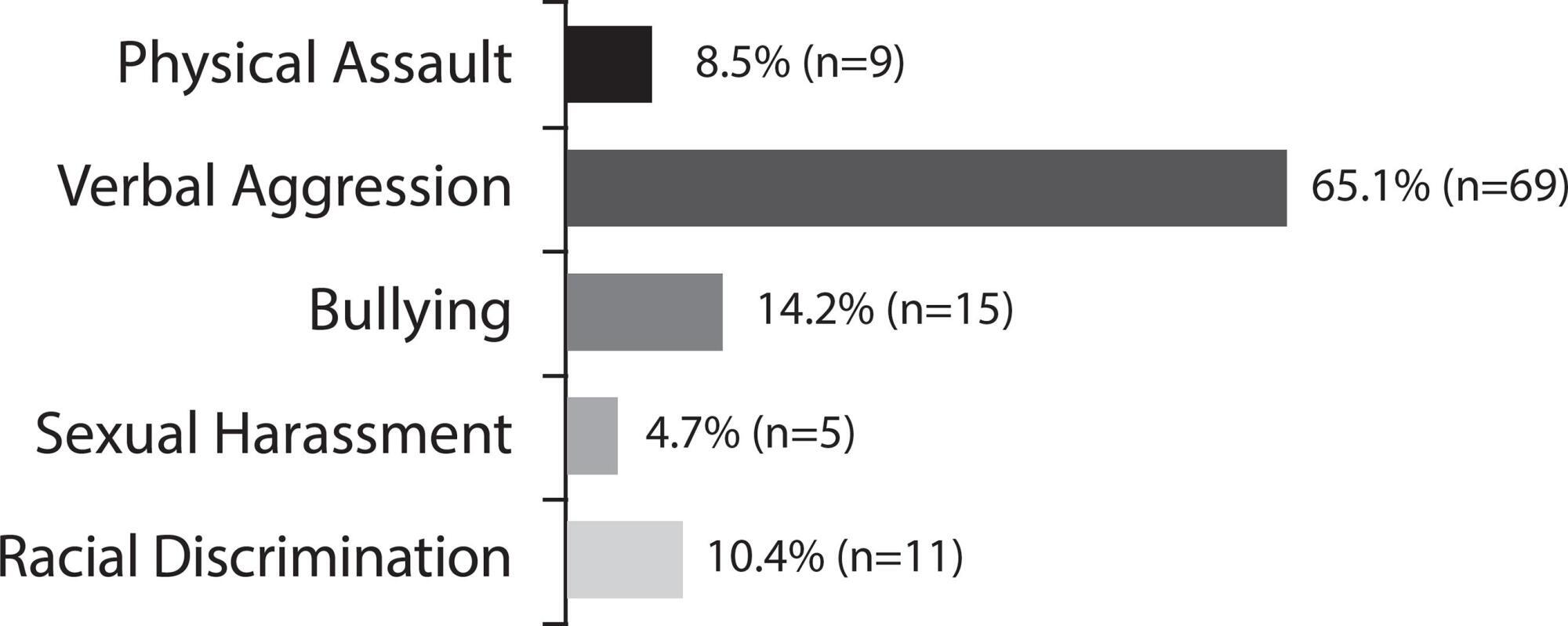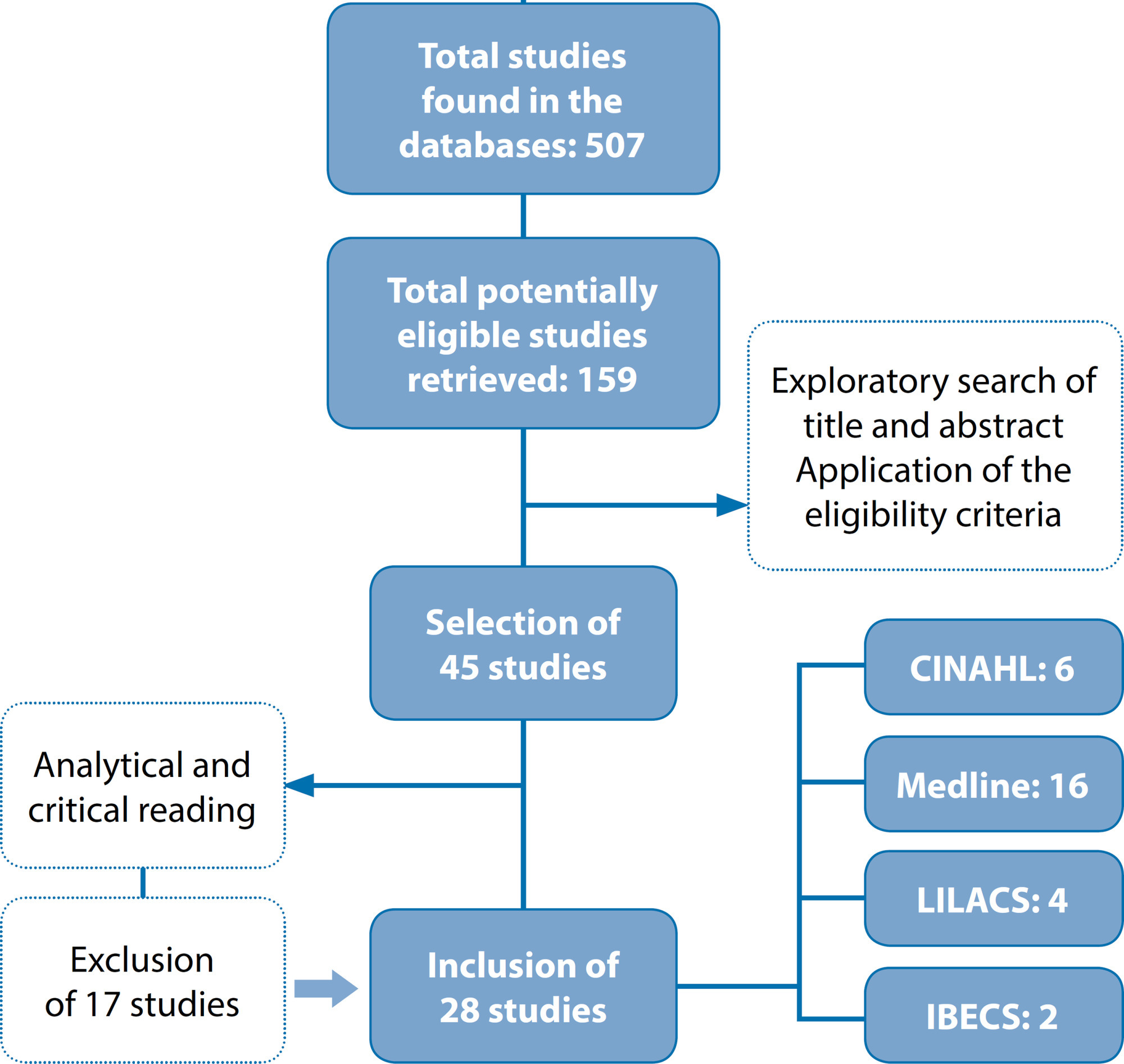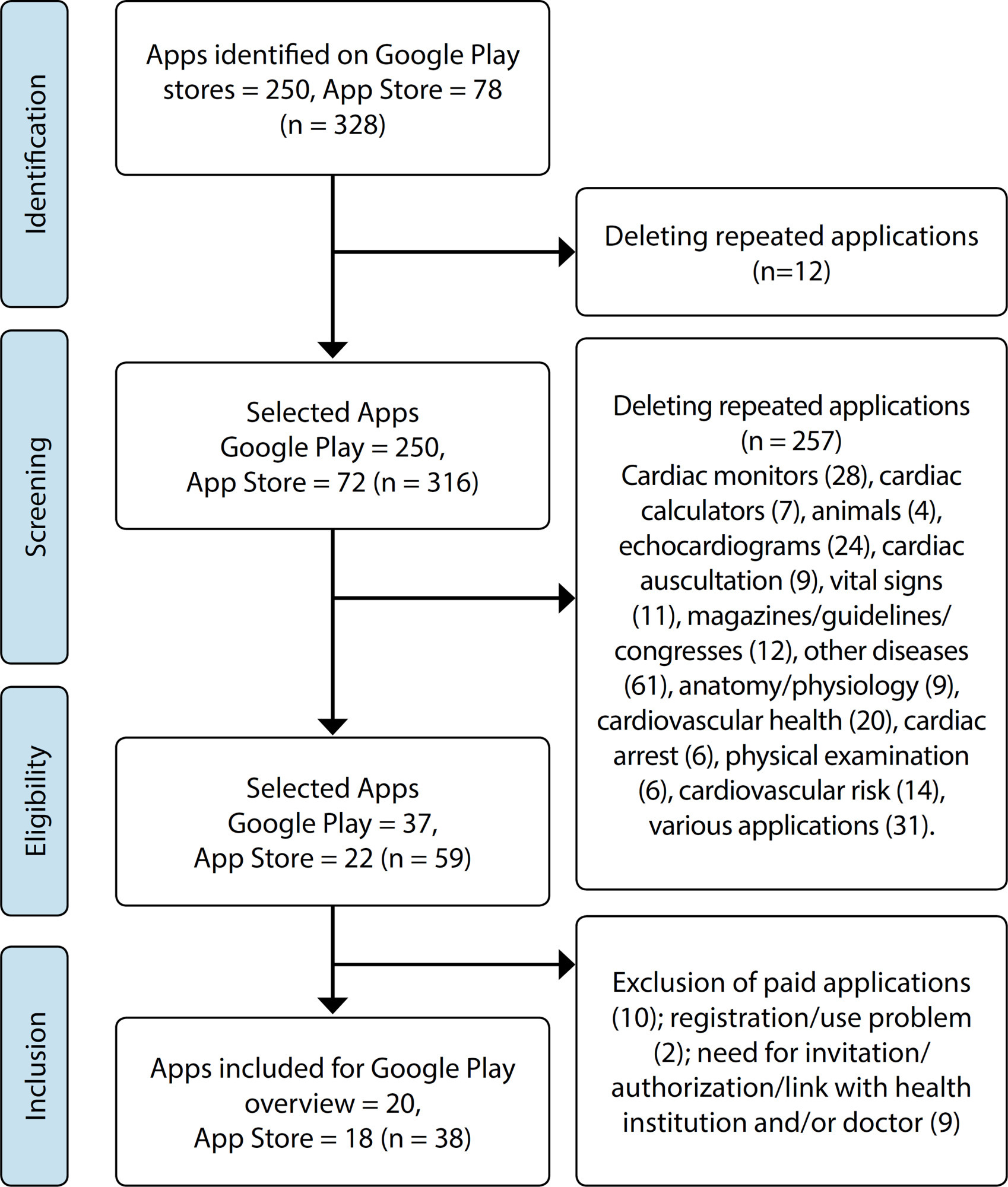-
01-01-2016
Descobertas das Ciências Biológicas e as implicações para a prática da Enfermagem
Revista Brasileira de Enfermagem. 2016;69(4):619-620
Abstract
Descobertas das Ciências Biológicas e as implicações para a prática da Enfermagem
Revista Brasileira de Enfermagem. 2016;69(4):619-620
DOI 10.1590/0034-7167.2016690401i
Views1A produção de conhecimento na área das ciências biológicas, durante muito tempo, foi vista como de responsabilidade e competência exclusivamente de profissionais médicos. Esse cenário alterou-se frente à tendência mundial de aperfeiçoamento dos demais profissionais de saúde, incluindo-se a necessidade de se concretizar a utilização da metodologia da prática baseada em evidência na atuação do […]See more -
01-01-2016
Discoveries of Biological Sciences and their implications for nursing practice
Revista Brasileira de Enfermagem. 2016;69(4):619-620
Abstract
Discoveries of Biological Sciences and their implications for nursing practice
Revista Brasileira de Enfermagem. 2016;69(4):619-620
DOI 10.1590/0034-7167.2016690401i
Views1For the longest time, the production of knowledge in the field of biological sciences was viewed as the exclusive responsibility and competence of medical professionals. This scenario has changed in light of the worldwide trend of improvements in other health professions, which includes the need to implement the use of evidence-based methodology in nursing practice. […]See more -
01-01-2016
The importance of civilian nursing organizations: integrative literature review
Revista Brasileira de Enfermagem. 2016;69(3):610-618
Abstract
The importance of civilian nursing organizations: integrative literature review
Revista Brasileira de Enfermagem. 2016;69(3):610-618
DOI 10.1590/0034-7167.2016690326i
Views0See moreABSTRACT
Objective:
to identify and analyze evidence from studies about the importance of civilian nursing organizations.
Method:
an integrative literature review, for which searches were conducted in the databases LILACS, PubMed/MEDLINE, SciELO, BDENF, and Scopus.
Results:
sixteen articles published between the years 2004-2013 were selected, 68.75% of which were sourced from Brazilian journals and 31.25% from American journals.
Conclusion:
civilian nursing organizations are important and necessary, because they have collaborated decisively in nursing struggles in favor of the working class and society in general, and these contributions influence different axes of professional performance.
-
01-01-2016
Effects from acupuncture in treating anxiety: integrative review
Revista Brasileira de Enfermagem. 2016;69(3):602-609
Abstract
Effects from acupuncture in treating anxiety: integrative review
Revista Brasileira de Enfermagem. 2016;69(3):602-609
DOI 10.1590/0034-7167.2016690325i
Views0See moreABSTRACT
Objective:
to evaluate the scientific evidence that is available in the literature on the effects of acupuncture for treating anxiety and on the quality of such studies.
Method:
the study is an integrative review of CINAHL, LILACS, PUBMED-PICO, SciELO, and The Cochrane Library between 2001 and 2014. Keywords anxiety, acupuncture therapy, acupuncture, and anxiety disorders were combined among themselves to ensure a wide search of primary studies.
Results:
among 514 articles, 67 were selected to be fully read and 19 were included. Among these, 11 were found to have strong evidence levels. Among the six articles about randomized clinical studies, five were found to be of reasonable quality. Two studies used acupuncturist nurses to perform their interventions. Its results showed positive and statistically significant effects from using acupuncture for treating subjects with anxiety.
Conclusion:
acupuncture seems to be a promising treatment for anxiety; however, there is a need for improving the methodological quality of the research on this field.
-
01-01-2016
Palliative care and spirituality: an integrative literature review
Revista Brasileira de Enfermagem. 2016;69(3):591-601
Abstract
Palliative care and spirituality: an integrative literature review
Revista Brasileira de Enfermagem. 2016;69(3):591-601
DOI 10.1590/0034-7167.2016690324i
Views0See moreABSTRACT
Objective:
to analyze scientifi c articles published in international online journals about palliative care and spirituality.
Methods:
an integrative literature review with data collected in September 2014 from the LILACS, SCIELO, MEDLINE/PubMed, and IBECS databases.
Results:
thirty-nine publications were identifi ed and their textual analysis facilitated through four thematic approaches: the meaning of spirituality in the context of palliative care; palliative care and spiritual support; spirituality and relief of pain and other symptoms in patients under palliative care; and instruments to evaluate the spiritual dimension of the scope of palliative care.
Conclusion:
this study examined the relevance of the spiritual dimension in the care of patients with palliative care and the need for developing new studies to disseminate knowledge about this topic.
Descriptors:
Palliative Care; Palliative Care at End of Live; Spirituality; Religion; Health.
-
01-01-2016
Educational technologies to encourage (self) care in postpartum women
Revista Brasileira de Enfermagem. 2016;69(3):582-590
Abstract
Educational technologies to encourage (self) care in postpartum women
Revista Brasileira de Enfermagem. 2016;69(3):582-590
DOI 10.1590/0034-7167.2016690323i
Views0See moreABSTRACT
Objective:
to evaluate national and international literature regarding the use of educational technologies to encourage self care in postpartum women.
Method:
an integrative review of the literature. The articles were collected from the CINAHL, SCOPUS, PubMed, SciELO, LILACS and Cochrane databases; the time period for the articles referred to January/2004 to July/2014; the languages used in the articles were Portuguese, English, Spanish and French; the articles were selected from the following descriptors: postpartum care period, educational technology, nursing and self care. Twenty-seven articles were selected for analysis
Results:
based on the information found, the scales, counseling and home visits were among the most recommended educational technologies.
Conclusion:
the technologies promote communication, but are sometimes dependent on computer and internet access, which hinder their use by low-income women.

-
01-01-2016
Patients with HIV/Aids and ulcer risk: nursing care demands
Revista Brasileira de Enfermagem. 2016;69(3):574-581
Abstract
Patients with HIV/Aids and ulcer risk: nursing care demands
Revista Brasileira de Enfermagem. 2016;69(3):574-581
DOI 10.1590/0034-7167.2016690322i
Views0See moreABSTRACT
Objective:
to analyze the demand for nursing care and the risk of pressure ulcers (PU) of patients with HIV/Aids.
Method:
quantitative survey, carried out from December 2012 to March 2013 in a public hospital of Teresina, state of Piauí, Brazil.
Results:
the sample of 31 patients was predominantly male, mean age 36.6 years, average care demand 49.4%, most showing some risk of developing PU. The variables correlated with PU risk were care demand and clinical outcome (death). Those associated with care demand were age and clinical outcome (death).
Conclusion:
the results showed that patients require moderate nursing care needs and most of them present risk of developing PU.

-
01-01-2016
Lack of anticipated support for care for community-dwelling older adults
Revista Brasileira de Enfermagem. 2016;69(3):566-573
Abstract
Lack of anticipated support for care for community-dwelling older adults
Revista Brasileira de Enfermagem. 2016;69(3):566-573
DOI 10.1590/0034-7167.2016690321
Views0See moreABSTRACT
Objective:
to identify the factors associated with lack of anticipated support for care for community-dwelling older adults.
Method:
this study presents comparison and logistic regression analyses of data from 671 individuals who took part of the multicentric study entitled “Frailty in older Brazilians” – a quantitative, epidemiologic and transversal investigation carried out between 2008 and 2009.
Results:
the subjective evaluation of anticipated support for care for community-dwelling older adults was a good indicator of risk for lack of anticipated support for care in women, older adults who live alone and those with poor self-rated health.
Conclusion:
it is necessary to reflect upon the formal support system currently available for older people in Brazil, considering that those who most frequently presented lack of anticipated support for care are an increasing population. The study also highlights the importance of using subjective methods for the evaluation of the adequacy of older adults’ support network.
-
ORIGINAL ARTICLE06-01-2020
Workplace violence types in family health, offenders, reactions, and problems experienced
Revista Brasileira de Enfermagem. 2020;73:e20190055
Abstract
ORIGINAL ARTICLEWorkplace violence types in family health, offenders, reactions, and problems experienced
Revista Brasileira de Enfermagem. 2020;73:e20190055
DOI 10.1590/0034-7167-2019-0055
Views0See moreABSTRACT
Objective:
to identify the types of violence that affect the health team in Family Health Units, their offenders, reactions and problems experienced by workers.
Method:
a cross-sectional, concurrent mixed-type research. The Survey Questionnaire Workplace Violence in the Health Sector was applied to 106 workers from Family Health Units. Of these, 18 answered the semi-structured interview.
Results:
verbal aggression (65.1%), bullying (14.2%), racial discrimination (10.4%), physical assault (8.5%) and sexual harassment (4.7%) were prevalent. Patients were the main perpetrators of verbal aggression (79.4%) and bullying (46.7%). Workers responded by telling co-workers and reporting to the boss. Victims remained over-alert, vigilant and tense, relating exposure to violence to absenteeism and the desire to leave the profession.
Conclusion:
verbal aggression is the most common violence with negative impact on workers’ health and work performed.

-
REVIEW07-09-2021
Breast cancer screening in Primary Health Care in Brazil: a systematic review
Revista Brasileira de Enfermagem. 2021;74(3):e20200995
Abstract
REVIEWBreast cancer screening in Primary Health Care in Brazil: a systematic review
Revista Brasileira de Enfermagem. 2021;74(3):e20200995
DOI 10.1590/0034-7167-2020-0995
Views1See moreABSTRACT
Objectives:
to analyze care strategies for breast cancer screening in Primary Health Care in Brazil.
Methods:
this is a systematic review following the Cochrane Collaboration recommendations.
Results:
among 355 manuscripts, five were eligible. The patient navigation program by Community Health Agent stood out with the best result, among the strategies: flexibility of goals considering viability; community engagement; team training; active search of the target population by Community Health Agent; request for mammography by physicians; actions integrated to women’s health; monitoring of mammography results, absent users, and population coverage by physician and nurse; and assessment of criteria for requesting screening mammography by means of an information system. The population coverage rate in the program ranged from 23% to 88%.
Conclusions:
Primary Health Care in Brazil presents devices with potential to induce the production of care for breast cancer screening.

-
ORIGINAL ARTICLE06-08-2020
Teaching in health residencies: knowledge of preceptors under Shulman’s analysis
Revista Brasileira de Enfermagem. 2020;73(4):20180779
Abstract
ORIGINAL ARTICLETeaching in health residencies: knowledge of preceptors under Shulman’s analysis
Revista Brasileira de Enfermagem. 2020;73(4):20180779
DOI 10.1590/0034-7167-2018-0779
Views0See moreABSTRACT
Objectives:
to understand how the pedagogical knowledge that integrates the basic knowledge of teaching is perceived by preceptors in residents’ teaching-learning process.
Methods:
a qualitative research conducted by semi-structured interview from December 2013 to July 2014, with 31 preceptors of residency programs of three university hospitals in northeastern Brazil. For analysis, the Grounded Theory’s proposal was used and supported by Atlas ti(r) 7.0 software.
Results:
preceptors integrate preceptorship with basic teaching knowledge proposed by Lee Shulman, with emphasis on General Pedagogical Knowledge when seeking strategies to better work on specific and disciplinary content, and Pedagogical Content Knowledge when adapting content to make it comprehensible to residents.
Final Considerations:
the study allowed us to understand how Shulman’s basic knowledge of teaching is perceived by preceptors. It is recognized that they integrate knowledge into the preceptorship, highlighting the General and Pedagogical Content Knowledge.
-
REVIEW06-18-2021
Microbiological profile of leg ulcer infections: review study
Revista Brasileira de Enfermagem. 2021;74(3):e20190763
Abstract
REVIEWMicrobiological profile of leg ulcer infections: review study
Revista Brasileira de Enfermagem. 2021;74(3):e20190763
DOI 10.1590/0034-7167-2019-0763
Views0See moreABSTRACT
Objectives:
to analyze the microbiological profile of leg ulcers of patients treated at outpatient clinics and hospitals regarding the type of microorganism, microbiological selection of antibiotics, and techniques for the collection of culture material.
Methods:
literature review performed on LILACS, IBECS, MEDLINE, and CINAHL databases, resulting in a descriptive analysis of 27 studies.
Results:
35.7% of the studies occurred in an outpatient care scenario; and 64.2% in hospitals. There was a predominance of swab (100%) in outpatient care and biopsy (55.5%) in the hospital. Escherichia coli, Pseudomonas aeruginosa, and Staphylococcus aureus were more common at both levels of assistance. Methicillin-resistant Staphylococcus aureus was isolated in both.
Conclusions:
the microbiological profile of infections was similar, with the presence of resistant bacteria in both environments. This fact causes concern and raises the need for research to elucidate it. The studies did not compare the effectiveness between biopsy and swab.

-
ORIGINAL ARTICLE04-03-2020
Organizational culture: prevention, treatment, and risk management of pressure injury
Revista Brasileira de Enfermagem. 2020;73(3):e20180510
Abstract
ORIGINAL ARTICLEOrganizational culture: prevention, treatment, and risk management of pressure injury
Revista Brasileira de Enfermagem. 2020;73(3):e20180510
DOI 10.1590/0034-7167-2018-0510
Views0See moreABSTRACT
Objectives:
To identify the facilitating and complicating factors for the prevention and treatment of pressure injury (PI) in the management of hospitalized patient care.
Methods:
This is a cross-sectional study, conducted with 197 nursing professionals in three public hospitals.
Results:
Among the identified factors, it is noteworthy that 59% of respondents are unaware of the PI prevention protocol, 27% do not use clinical evaluation for daily sizing of professionals, more than 52% believe that no facilitating elements exist, and 76% argue that there are complicating elements for the prevention of PI. As for the treatment, a little over 60% reported that the patient and the injury are evaluated by nurses, with 54% of the procedures being prescribed by the physician and 46% of the therapy being performed by nursing technicians.
Conclusions:
We conclude that the prevention and treatment of PI require shared management, with integrated actions among the care executors.
-
09-24-2022
Effects of auriculotherapy in the treatment of nausea and vomiting: a systematic review
Revista Brasileira de Enfermagem. 2022;75(1):e20201350
Abstract
Effects of auriculotherapy in the treatment of nausea and vomiting: a systematic review
Revista Brasileira de Enfermagem. 2022;75(1):e20201350
DOI 10.1590/0034-7167-2020-1350
Views0See moreABSTRACT
Objectives:
to identify the effectiveness of auriculotherapy in the treatment of nausea and vomiting through a systematic review of the scientific literature.
Methods:
it was performed a systematic review of the literature making use of the following data basis: The Scopus, PubMed, CINAHL (Cumulative Index to Nursing and Allied Health Literature), Web of Science, LILACS and Cochrane databases were used. Articles from complete research from randomized controlled clinical trials that describe using auriculotherapy in nausea and vomiting treatment were selected, without restriction of date or language.
Results:
eleven articles were selected for analysis. The majority approached the population in surgical situations, followed by patients undergoing chemotherapy and pregnant women. As for results, 81% (n=8) of the articles reported that nausea and vomiting were lower in incidence and/or intensity in the intervention group.
Conclusions:
the review provided relevant data on the effects of auriculotherapy in nausea and vomiting treatment, with a decrease in the intensity and frequency of these symptoms in different populations.

-
10-01-2022
Benchmarking of mobile apps on heart failure
Revista Brasileira de Enfermagem. 2022;75(1):e20201093
Abstract
Benchmarking of mobile apps on heart failure
Revista Brasileira de Enfermagem. 2022;75(1):e20201093
DOI 10.1590/0034-7167-2020-1093
Views0INTRODUCTIONHeart failure (HF) is an emerging global threat, with a current prevalence of 64.34 million cases on the planet (8.52 per 1,000 inhabitants), representing 9.91 million years lost due to disability and spending of US$346.17 billion(), with a prospect of an increase despite therapeutic advances. These data alert to the prioritization of preventive actions and […]See more
-
ORIGINAL ARTICLE08-19-2019
Health promotion by nursing technicians from the nurses’ perspective
Revista Brasileira de Enfermagem. 2019;72(4):979-987
Abstract
ORIGINAL ARTICLEHealth promotion by nursing technicians from the nurses’ perspective
Revista Brasileira de Enfermagem. 2019;72(4):979-987
DOI 10.1590/0034-7167-2018-0552
Views0See moreABSTRACT
Objective:
to analyze education and practice of nursing technicians in health promotion, from the perspective of teaching nurses of technical course and Primary Health Care nurses.
Method:
an exploratory study with qualitative data analysis, carried out in the city of São Paulo, through semi-structured interviews with nine public technical professors and 16 nurses from the basic health network. Data thematic analysis was carried out.
Results:
three thematic categories have emerged: Conceptions and experiences on health promotion; Nursing technician’s practice in health promotion; and Nursing technician education on health promotion.
Final considerations:
it is necessary to review the centrality given to technicalism in the education and practice of nursing technicians, contemplating the health promotion and seeking the development of professional competence for the construction of transformative practices aimed at valuing the autonomy and proactivity of the people in health and quality of life production.
Search
Search in:
Nuvem de Tags
Adolescente (85) Atenção Primária à Saúde (239) COVID-19 (91) Criança (91) Cuidados de Enfermagem (269) Educação em Enfermagem (151) Educação em Saúde (139) Enfermagem (930) Enfermagem Pediátrica (86) Estudantes de Enfermagem (77) Estudos de Validação (131) Família (87) Idoso (208) Promoção da Saúde (99) Qualidade de Vida (104) Saúde do Trabalhador (86) Saúde Mental (145) Saúde Pública (82) Segurança do Paciente (150) Tecnologia Educacional (100)



